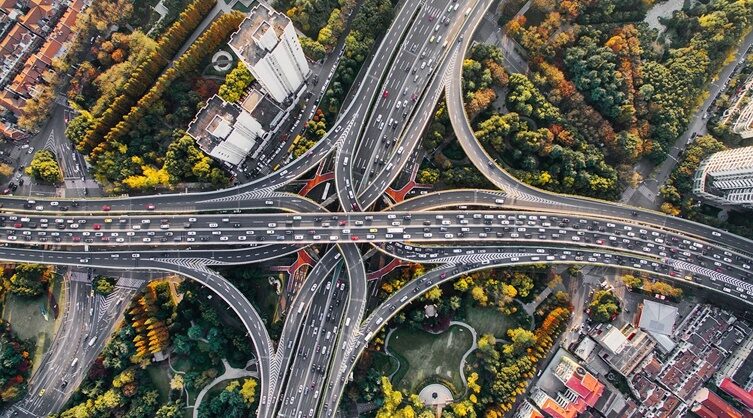The report’s release is expected to open new avenues for ‘Green Finance’ in infrastructure financing, further supporting NHAI’s endeavours.
Union Minister for Road Transport and Highways, Shri Nitin Gadkari, recently chaired a meeting with officials from the National Highways Authority of India (NHAI) in New Delhi to discuss various aspects of National Highway development. The meeting focused on enhancing work efficiency, resolving obstacles, and adopting innovative technology. Minister of State for Road Transport & Highways and Civil Aviation, General (Dr.) V.K. Singh (Retd.) and other senior officials were also present.
During the meeting, Shri Gadkari inaugurated NHAI’s first ‘Sustainability Report for FY 2021-22.’ The report provides insights into NHAI’s governance structure, operations, stakeholders, and initiatives related to the environment and social responsibility. Additionally, the Minister launched a book on ‘Road Development in India’ that delves into the history of building the National Highway network in the country.
Addressing the officials, Shri Gadkari emphasized the importance of accurate preparation and practical verification of Detailed Project Reports (DPR) to minimize project delays, reduce construction costs, encourage using environmentally sustainable materials, and implement proper road alignment. He shared his vision of citizen-centric services and urged NHAI officials to develop a world-class National Highways network in the country.
The report underscores its commitment to environmental sustainability. The report, unveiled by Mr Nitin Gadkari, showcases the effectiveness of NHAI’s efforts in environmental conservation and energy preservation. Over the past two years, direct emissions decreased by 18.44% due to reduced fuel consumption, and it continues to work towards reducing indirect emissions by transitioning to clean and green energy sources.
The report highlights a decline of 9.7% in greenhouse gas emissions in FY 2020-21 and 2% in FY 2021-22, measured in Metric Tonnes of CO2 equivalent/km constructed. NHAI also significantly reduced energy intensity, with a 37% decrease in FY 2020-21 and 27% in FY 2021-22 while steadily increasing the kilometres constructed. Implementing Electronic Toll Collection through FASTag, with a penetration rate of over 97%, has been crucial in reducing the carbon footprint.
NHAI has embraced using recycled materials in National Highway construction, including fly ash and plastic waste. The utilization of Recycled Asphalt (RAP) and Recycled Aggregates (RA) has also been promoted. Furthermore, NHAI has constructed over 100 Wildlife Crossings across 20 states in the last three years, aiming to protect wildlife and reduce conflicts between humans and animals.
The report emphasizes NHAI’s commitment to eco-friendly practices and plantation drives. Over the years, NHAI has significantly increased the number of saplings planted, reaching approximately 2.74 crores by 2021-22 to offset direct vehicle emissions. Collaborating with various stakeholders such as State Rural Livelihood Mission (SRLM), Self Help Groups, CSR partners, and NGOs, NHAI has organized plantation drives nationwide. In a single day in July 2022, around 1.1 lakh plants were planted at 114 locations across the country.
Moreover, the focus is also on inclusive and responsible work practices, witnessing an increase in women’s employment and the employment of marginalized communities over the past three years. Through a performance-based management system, NHAI has successfully promoted gender diversity and minority employees, with a 7.4% increase in female hiring and an overall workforce increase of 3% in three financial years.
Although the report is not mandated per SEBI guidelines, it has voluntarily taken this initiative to showcase its sustainability credentials. The report adheres to the Global Reporting Initiative (GRI) reporting guidelines and has been externally assured by a third party by International Standards on Assurance Engagements. The report’s release is expected to open new avenues for infrastructure financing known as ‘Green Finance’ within the framework of the Ministry of Finance, Government of India.
NHAI has taken significant strides in adopting sustainable and eco-friendly practices, including using renewable energy sources, promoting green highways, and implementing waste management practices. Moving forward, NHAI remains steadfast in its commitment to ensuring that its projects are economically viable, socially responsible, and environmentally sustainable.
Cookie Consent
We use cookies to personalize your experience. By continuing to visit this website you agree to our Terms & Conditions, Privacy Policy and Cookie Policy.

















